
9th Grade Field Studies
The 9th grade participate in a variety of field studies that focus on biology including ecology and marine biology and the impact of American History on the enviroment. Click on a link below for more specific information on some of our various field studies.
Bridging the Watershed at Harpers Ferry
Roosevelt Island Stewardship Field Studies
Izaak Walton League BCC Chapter Interpretive Hike
Assategue Island Study
https://docs.google.com/a/bar-t.com/file/d/0B2gNVqnH_T7mVnhaTkllSGVXQVU/edit?pli=1
The great thing is that we get to go to do it again tomorrow and hopefully for many years to come as Joe would like to install over 100 rain gardens in the future. Go Global!
Bridging the Watershed at Harpers Ferry
Students study the role that water plays on the settlement and development of a colonial town. They examine transportation, power and consumptive uses of water. Real life experiences help the students understand the role that the environment played in shaping our history and why natural resources are vital to our way of life today. Examining how the town used it's resources and the impacts those uses had on the environment is evaluated.
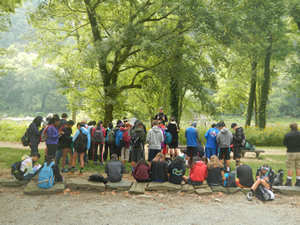 |
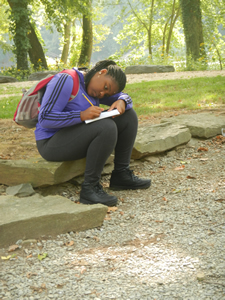 |
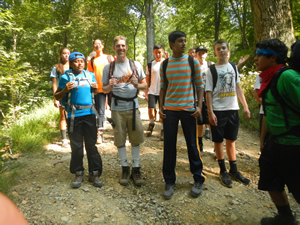 |
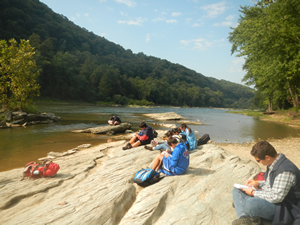 |
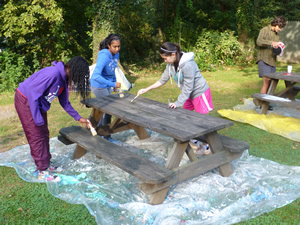 |
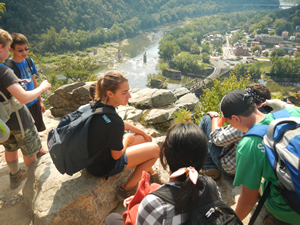 |
Roosevelt Island Stewardship Field Studies
Using their GIS skills, students create maps to highlight the location of several tree species and analyze their distribution based upon biologic, geologic, and hydrologic factors. Students also learn about the goals and achievements of Teddy Roosevelt as a pioneer for conservation.
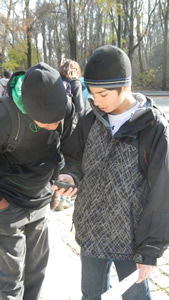 |
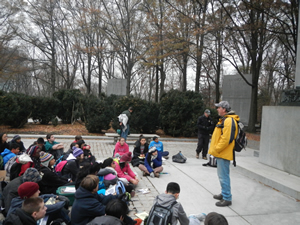 |
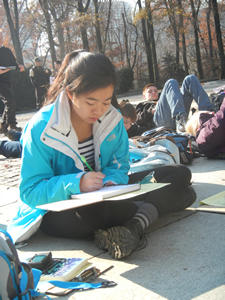 |
Izaak Walton League BCC Chapter Interpretive Hike
In an ongoing partnership with IWLA’s BCC Chapter, students are led on an “Interpretive Walk In the Woods”. The students discuss soil formation, erosion and the need to protect our top soil. Tree identification is practiced, the process of photosynthesis is reviewed, and students discuss the importance of conserving habitat as they discover and discuss a variety of organism artifacts. Students are able to clearly see the contrasting zoning laws in the Agricultural Reserve of Montgomery County and across the river in Virginia and they discuss land development verses conservation. This is the first of many interpretive hikes the students will attend in the Global Ecology House and students are taught the importance of observing the natural world around them.
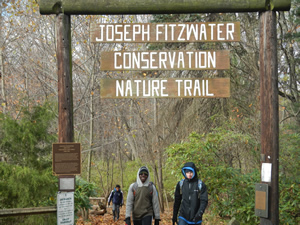 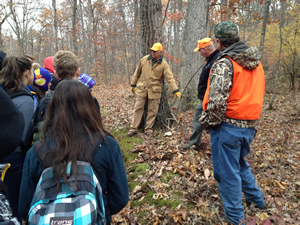 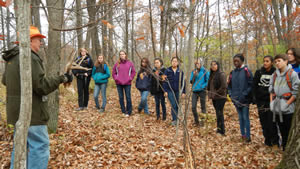 |
|
Assateague Island Study
Ninth grade students have the opportunity to attend an optional overnight trip to Assateague Island where they will study the complex interactions between humans and several marine ecosystems. During this interdisciplinary field study the emphasis is placed on field observations, data collection and data analysis. Students analyze the biology of the region while kayaking through the bay and discuss the geology of barrier island formation while conducting beach profiles and sand grain analysis.
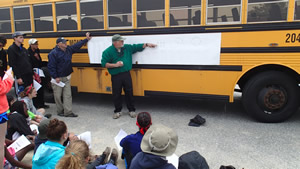 |
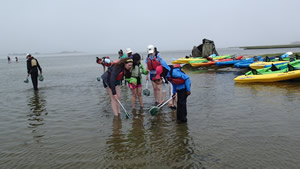 |
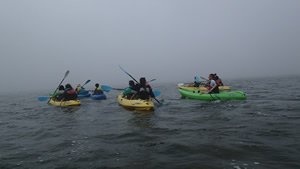 |
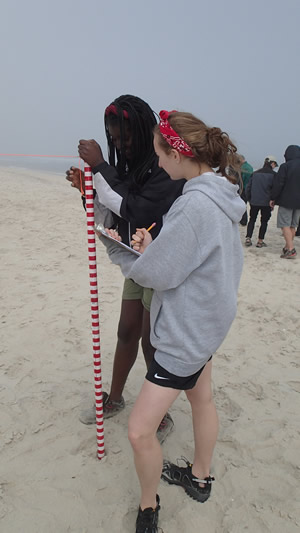 |
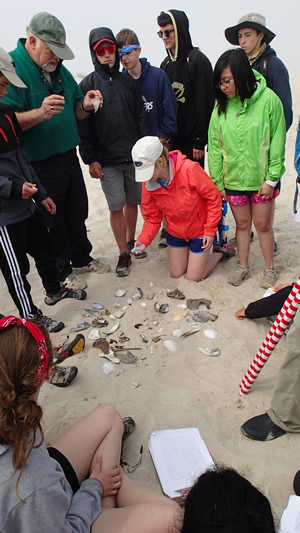 |
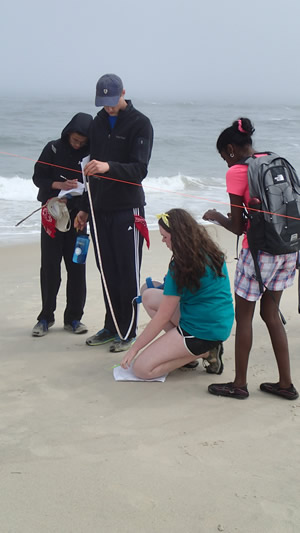 |
